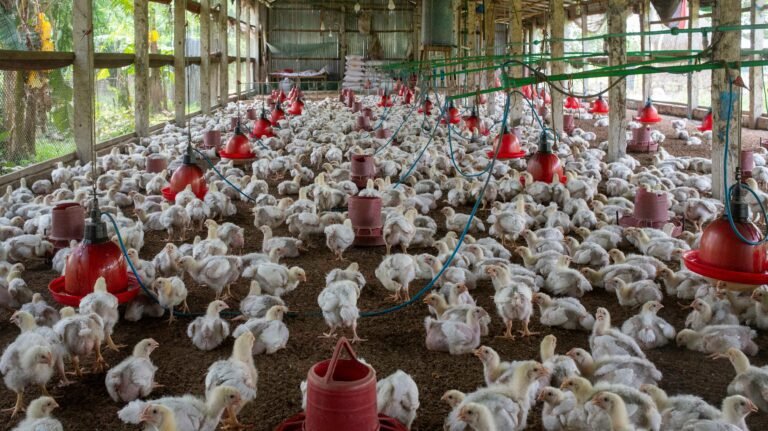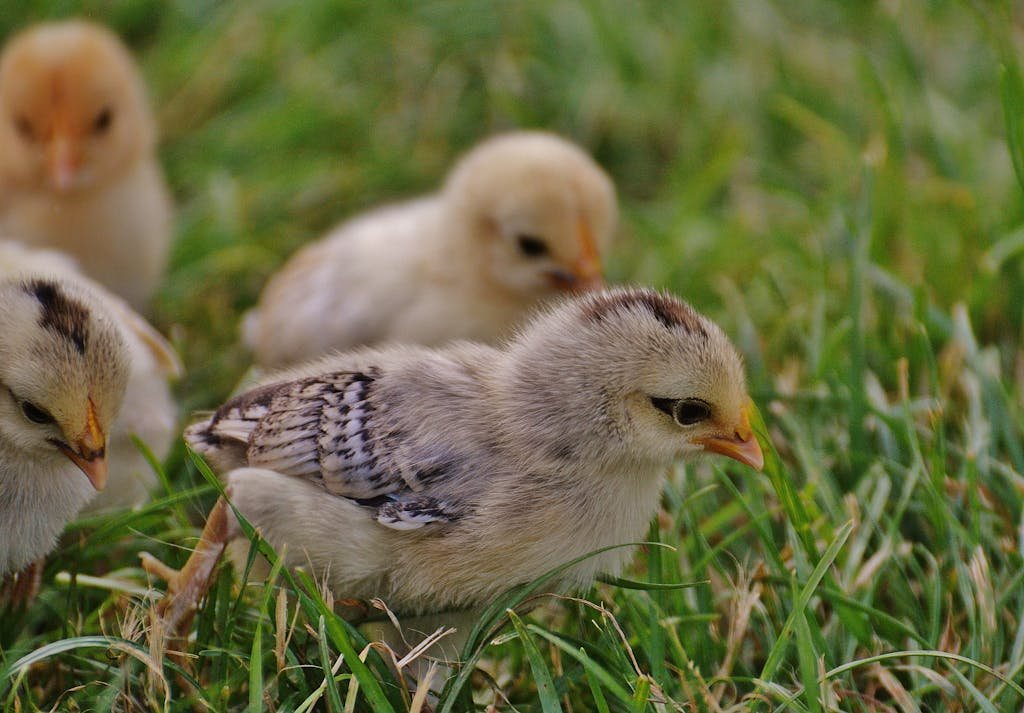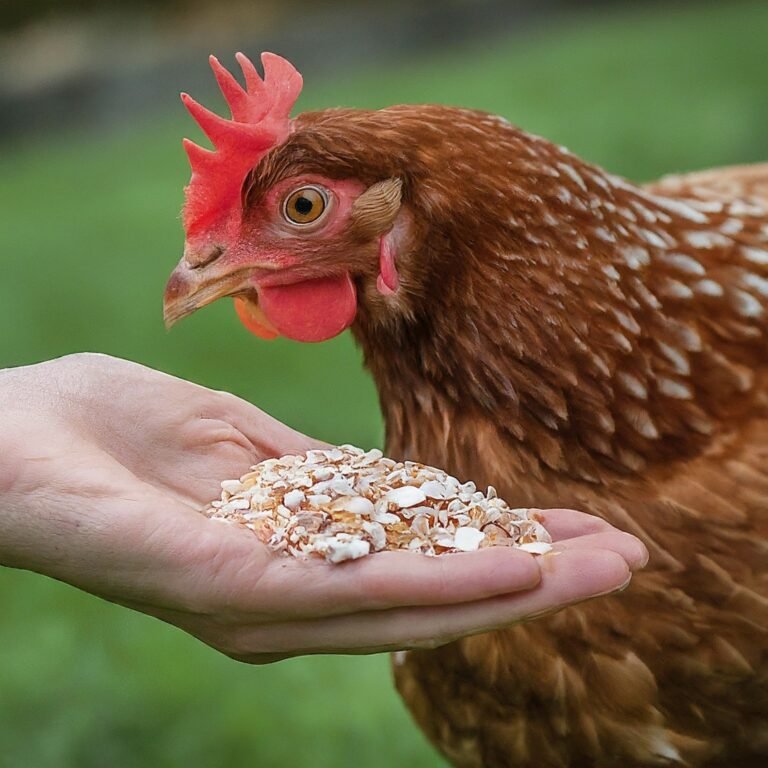Farm Fresh Eggs: Ultimate Cleaning Guide

Farm-fresh eggs are a wonderful treat, full of rich flavor and nutrients. However, they often come with a bit of dirt or debris, especially if they haven’t been washed before you buy or collect them. Properly cleaning these eggs ensures that you can safely enjoy them. I’ll guide you through each step in detail so that you can feel confident handling your farm-fresh eggs.
Here’s a complete guide on how to clean farm-fresh eggs, with detailed tips and instructions to make the process both easy and effective.
Why Cleaning Farm Fresh Eggs is Important
Farm-fresh eggs typically have a protective coating called the “bloom” that seals the pores on the eggshell. This coating helps keep out bacteria and preserves the egg’s freshness. However, if the eggs are visibly dirty, they need to be cleaned properly to avoid contamination when handling or cooking. Learning how to clean them without damaging the bloom is crucial.
Key Reasons to Clean Farm-Fresh Eggs
- Hygiene: Remove dirt, manure, and bacteria that could cause illness.
- Storage: Prevent spoilage and increase freshness.
- Appearance: Clean eggs look more appetizing.
- Safety: Reduce the risk of foodborne illnesses like Salmonella.
Now, let’s dive into the step-by-step process.
How to Clean Farm Fresh Eggs: A Step-by-Step Guide
Here’s a step-by-step guide on how to clean farm-fresh eggs:

Gather your supplies:
- Warm water
- Mild detergent or egg wash (optional)
- Soft brush or cloth
- Clean, dry towel
Wash the eggs individually:
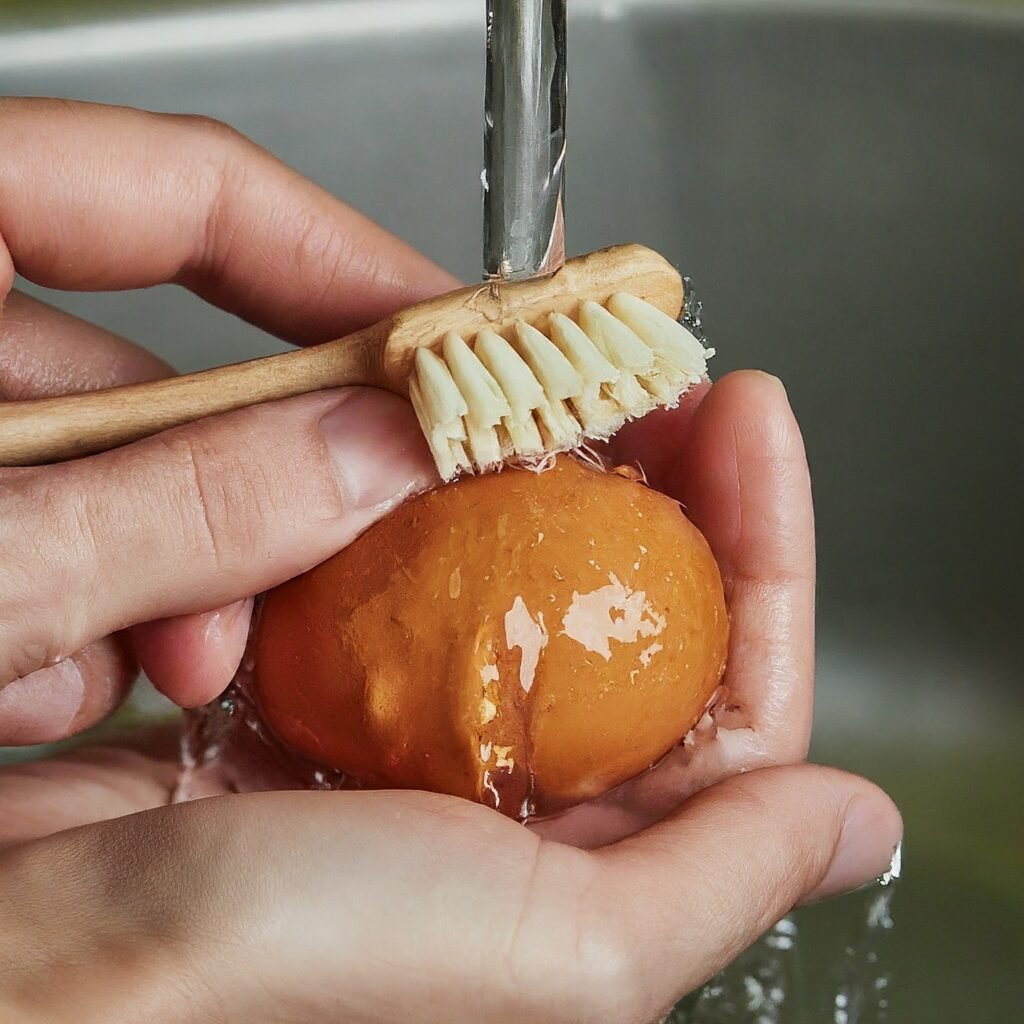
- Place each egg under running warm water.
- Gently scrub the egg with a soft brush or cloth to remove any dirt or debris.
- If the eggs are particularly dirty, you can add a small amount of mild detergent or egg wash to the water.
Read Also: Fancy Feather Foot Chickens: 10 Adorable Breeds
Rinse thoroughly:
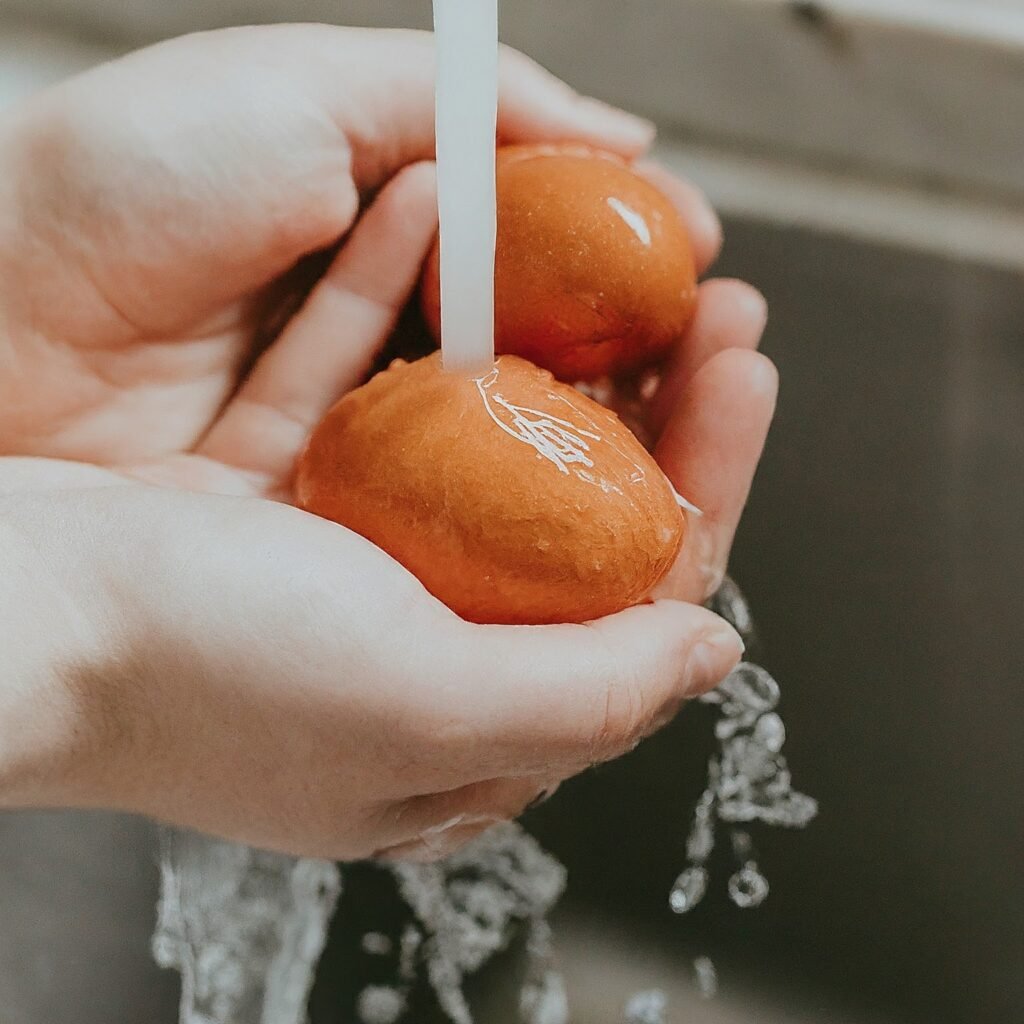
- After scrubbing, rinse each egg thoroughly under running warm water to remove any remaining detergent or residue.
Dry immediately:
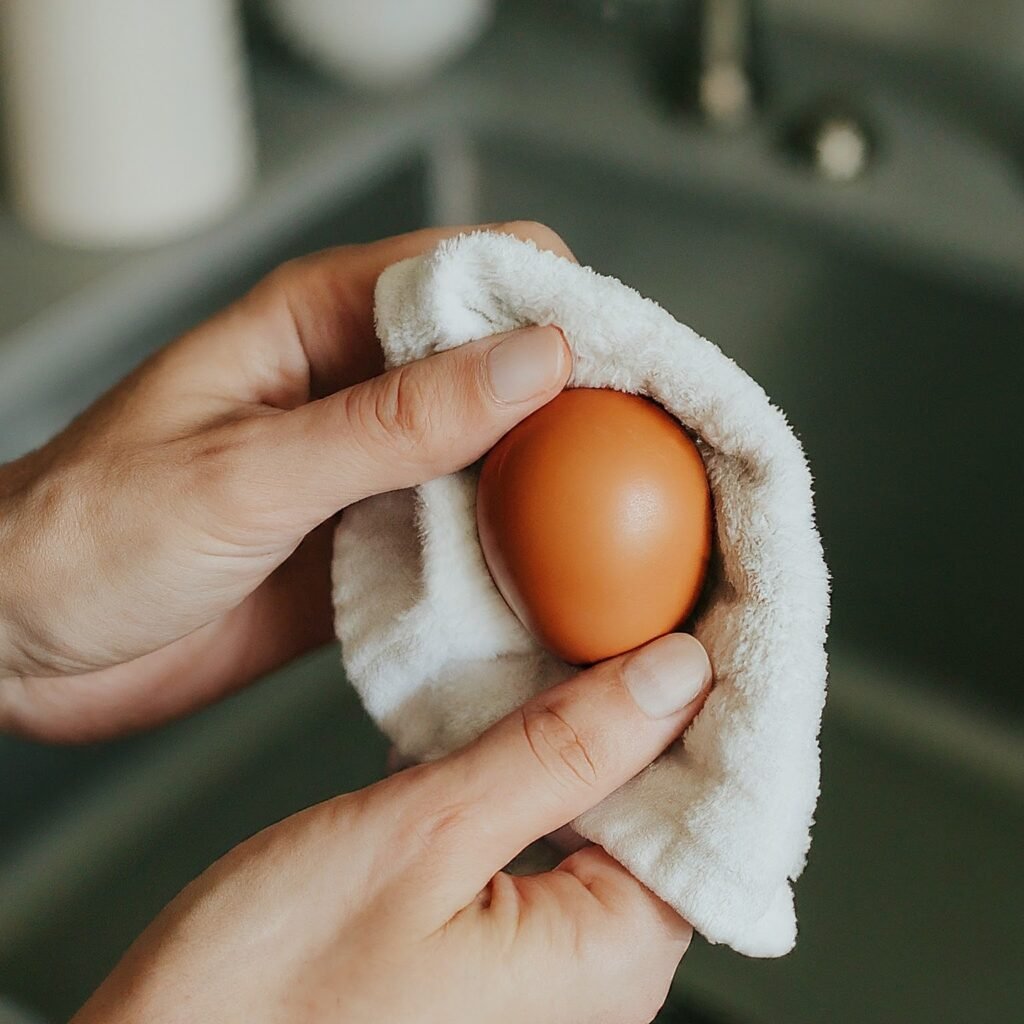
- Use a clean, dry towel to gently pat the eggs dry. This will help prevent moisture from entering the egg through the porous shell.
Store properly:

- After cleaning, store the eggs in the refrigerator. This will help maintain their freshness and prevent spoilage.
Additional Tips for Cleaning Farm-Fresh Eggs
There are a few more details that can help you maintain the freshness and safety of your eggs. Let’s look at some additional tips to make sure you’re getting the best results.
Avoid Harsh Chemicals
- Why it’s important: Using harsh chemicals like bleach can damage the eggshell and increase the risk of bacteria entering the egg.
- What to do: Always stick to mild detergents or simply use warm water for cleaning. Chemicals like bleach or strong disinfectants are unnecessary and could ruin the natural protective layer on the egg.
Check for Cracks Before Cleaning
- Why it’s important: Eggs with cracks are more susceptible to contamination, as bacteria can easily enter through the damaged shell.
- What to do: Before washing, inspect each egg for cracks or chips. If you find any, it’s best to discard these eggs or cook them immediately for safety.
Wash Hands After Handling Eggs
- Why it’s important: Farm-fresh eggs may carry bacteria like Salmonella on their shells, so it’s essential to wash your hands after handling them.
- What to do: After cleaning your eggs, wash your hands thoroughly with soap and warm water to avoid spreading bacteria.
Can You Eat Unwashed Farm-Fresh Eggs?
It’s common for farm-fresh eggs to come unwashed, and some people prefer to leave them unwashed until they’re ready to use them. This is because washing removes the natural protective coating, making the eggs more vulnerable to bacteria.
Pros of Leaving Eggs Unwashed
- Retains the Bloom: The natural coating (bloom) helps protect the egg from bacteria.
- Longer Storage at Room Temperature: Unwashed eggs can be stored at room temperature for up to two weeks in many cases.
Cons of Leaving Eggs Unwashed
- Visible Dirt or Contamination: If the eggs are visibly dirty or have manure on them, it’s safer to wash them before storing them.
- Risk of Bacteria: If the shell has cracks or damage, bacteria can more easily enter unwashed eggs.
Read Also: Kill Mycoplasma: Save Your Chickens Now!
Final Words
Cleaning farm-fresh eggs is an important process that helps ensure food safety without compromising the egg’s natural flavor and nutrients. By following the steps I’ve outlined, you’ll be able to enjoy your farm-fresh eggs without worrying about dirt or bacteria.
Remember to always handle eggs gently, use the right supplies, and store them properly. By taking these precautions, you can make sure that your eggs are safe, clean, and ready to enjoy!
